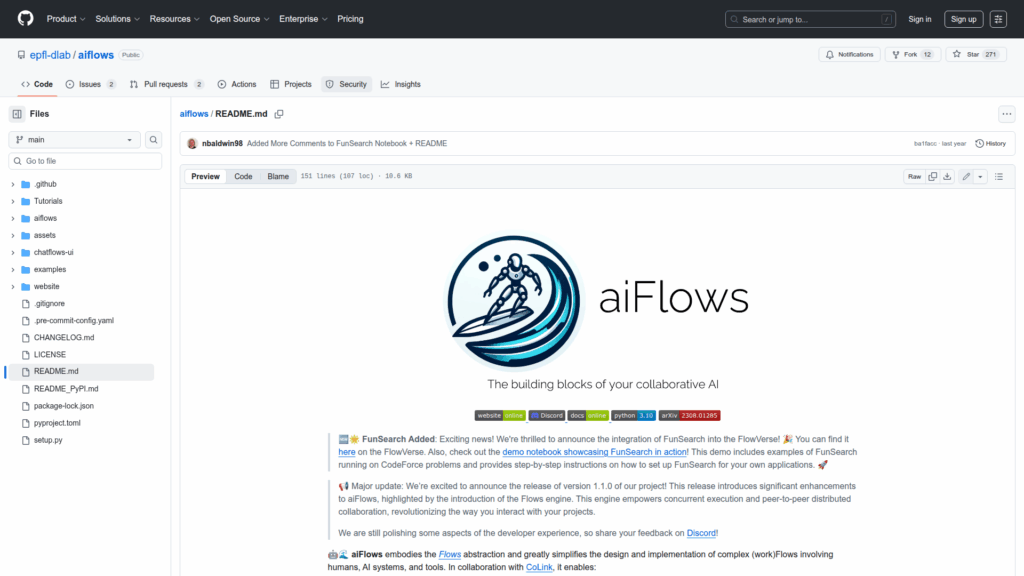aiflows
Basic Information
aiFlows is an open-source Python framework that implements the Flows abstraction to simplify the design, implementation and sharing of complex workflows that combine humans, AI systems and external tools. It provides a message-based interface where Flows are independent, goal-driven building blocks that can be composed into atomic or nested composite Flows. The project emphasizes modularity, reusability and reproducibility, and supports sharing Flow configurations on a community FlowVerse repository. The library targets researchers and developers who need controlled, customizable workflows and supports Python 3.10+. Recent updates introduce a Flows engine to enable concurrent execution and peer-to-peer distributed collaboration. The repository includes tutorials, examples and demo notebooks such as FunSearch to illustrate common use cases and to accelerate experimentation.








